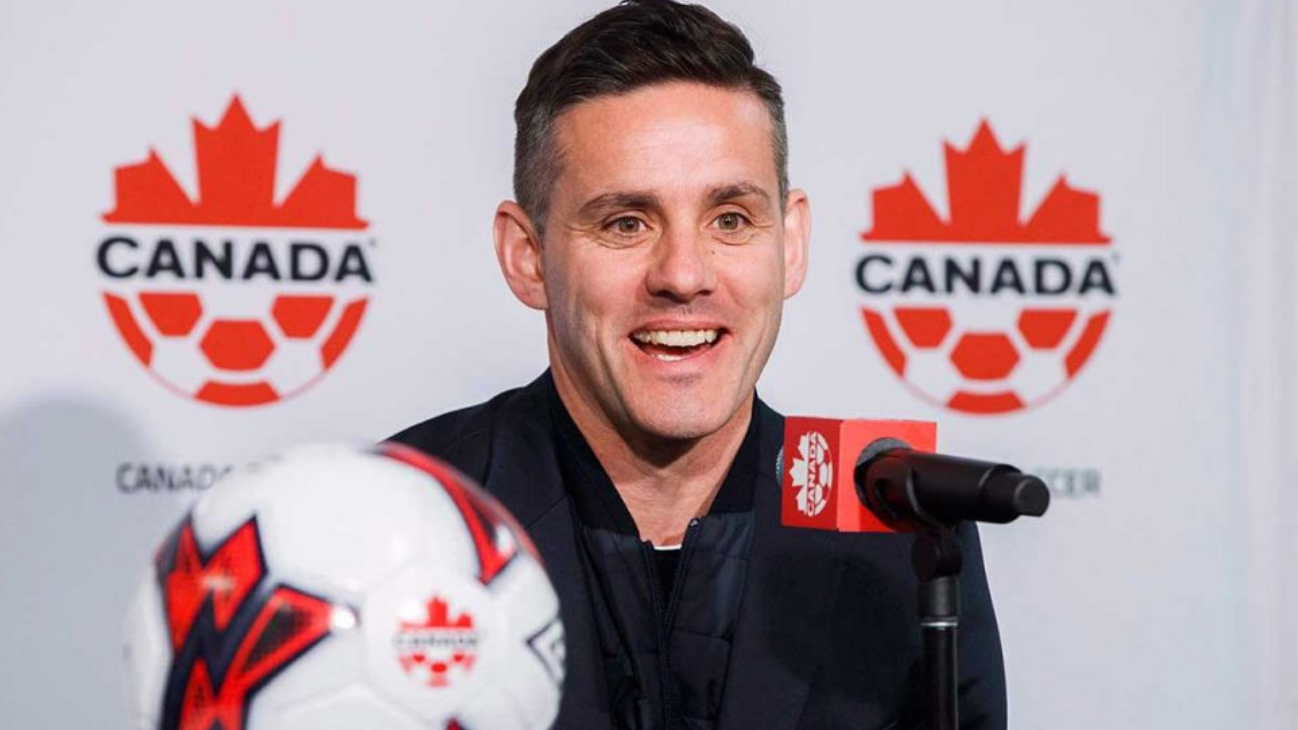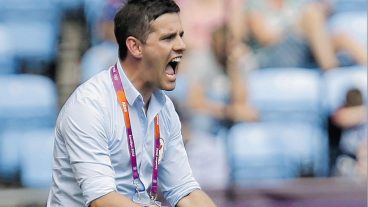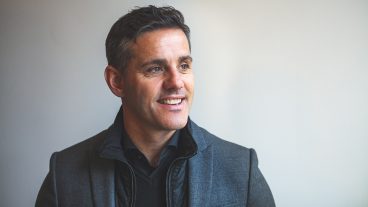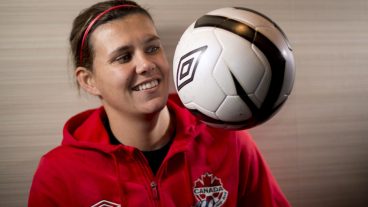John Herdman has never been one to shy away from a challenge. As the former Head Coach of the Canadian Women’s Soccer Team, he took what was once a “struggling squad” to one that has captured the hearts and minds of Canadians. Under his leadership, the team won two back-to-back bronze medals at the Olympic Games, and a gold medal at the Pan Am Games ― the first in Canadian soccer history.
Today, John brings the same amount of passion, discipline, and commitment as the head coach of the Canadian Men’s Soccer Team. He recently sat down with Sportsnet to reflect on his first year with the team, speaking candidly about the challenges he’s faced, his progress so far, and his vision for the team’s future.
What kind of progress has the team made in 12 months? Is the team where you thought it would be at this point?
The recruitment of players like Ballou Tabla and others who could have played for other countries, there’s been some real wins there that will set us up for the future. To get senior players and players from overseas, guys who have often been in and out of training camps, and made choices as to when they would represent Canada, they’ve been re-motivated. The youth movement, as well, we’ve been able to integrate a lot of youngsters and teenagers into the system. That’s important for us on a number of levels, like knowing where the team will be in four years. There’s been good elements around player commitment, player strategies and player recruitment.
On the pitch, it’s been a little challenging. The challenging part has been understanding that you’re working in very tight and short windows of time against opponents that are difficult to scout, so I would say we’re not quite where I want the team to be at this stage. We’ve had games against New Zealand, Saint Kitts and Nevis, Dominica and the U.S. Virgin Islands — these are tier-two opponents. Also, I think our identity on the pitch has been loose in games. The tactical excellence that we’ve been pushing for on the field has been loose, so there’s still a lot of work to be done. The team spirit is bubbling away nicely, and that’s starting to create a culture where people can challenge each other and ask these hard questions about their accountability on the field.
What have been the biggest challenges of your tenure thus far?
I think there was this skepticism to break down because this is a program that hasn’t won anything since the [2000] Gold Cup. I was surprised by how many relationships were really fragile, and with that the amount of time you have to spend to repair them. Just in terms of integration with the MLS clubs, it was hard to break down the initial barriers because they hadn’t had that communication at this level, so there was this asceticism from them of “Why? Why do you want to work with us now when you didn’t want to before?” It was more realizing that this is going to take a lot of work to improve relationships and prove ourselves in every communication we make. We have to operate at the highest level of professionalism and delivery, because if we don’t then people aren’t going to listen. So, it’s been about galvanizing this country around [the 2026 World Cup] and giving all the stakeholders a sense that we can work together to make and create better opportunities for Canadian players.
You mentioned changing the culture of the team. How hard was that and is that still a work in progress?
I think culture is always a work in progress because it’s built on trust, and it’s built on doing what you say you’re going to do and doing it consistently. The minute that consistency drops and you’re not doing the things you said you were going to do, you lose trust and the culture you’re working for quickly disappears. We’re trying to set standards because we want people to feel that we have clear vision for the country that we can all attach ourselves to.
So, it’s been a cultural shift at every level. We’ve recognized that if we just work in a silo with the team, we only reach a certain amount of stakeholders and people who can help the program to the next level. That’s why we felt it was so important to go into every province and talk to coaches, provincial officials, technical directors of clubs about our vision and the strategies we have in place. All of this is about the cultural shift, and if we can get this in place, for me, that’s the biggest part of the legacy we leave — we can leave the program better than we found it if those bonds between provinces and clubs and the national team are improved. If we do that, I feel we can compete consistently with the top national teams in Concacaf.
Last month, you boldly proclaimed that Canada would qualify for the 2022 FIFA World Cup in Qatar, and would be competitive in the 2026 World Cup that Canada will co-host with Mexico and the United States. I’m not sure many of your predecessors would have done that. Why did you make that proclamation?
I think with some who came before me, it was more about saving their jobs or looking after their role within the team. That’s what I’ve learned about the men’s game at the international level. It’s such a frail role that coaches are in that no one ever wants to set themselves up to fail.
This group of players believes it’s possible, and if their coach does not support their vision, then nothing is real in your environment. So, it’s always been a case of let’s under-promise and over-deliver. At the end of the day, when you look to under-promise, you tend to under-deliver. It’s all about where your sights are set.
This group of men have a responsibility, my staff has a responsibility, and there’s a group of people in powerful positions in this country who have a responsibility to take this team to 2022 and get it ready for 2026. And that’s as an entire organization. That’s not John Herdman saying we’re going to qualify. That’s me putting everybody on guard – from the Canada Soccer board, to our president, to our general secretary, the provincial bodies. It’s everybody. It’s time, and we’re not going to get this time back, so we have to use it wisely. We have the talent to qualify, so let’s do everything we can to do it.
In his riveting talks, John Herdman explains the importance of vision, passion, and discipline in achieving success, both on the field and in the office.
Interested in learning more about John and what he can bring to your next event? Email us at [email protected].




